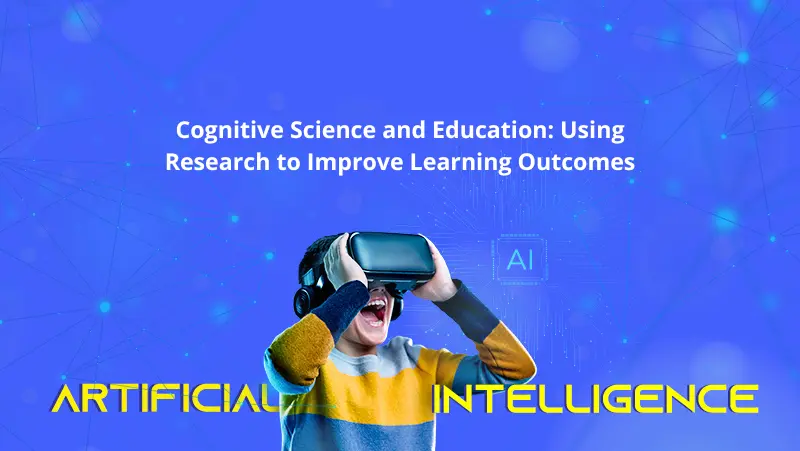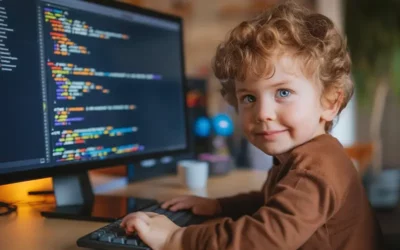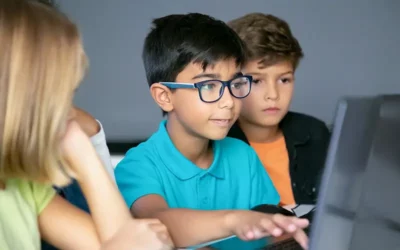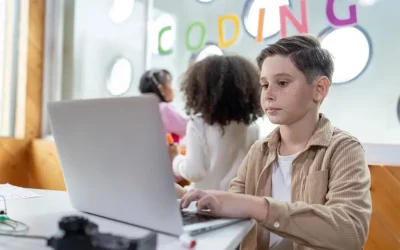Cognitive science is a scientific field that studies the processes, techniques, and mechanisms that underlie human thought and intelligence. Recent years have seen significant advances and enhancements in the field of Artificial Intelligence (AI), enabling machines to replicate human thought processes and communication. These breakthroughs have largely been made possible by insights drawn from cognitive science research. The impact of cognitive science extends beyond the field of AI. It has also influenced various other fields, including healthcare, education, computer science, human resource management, and more.
Are you curious about the relationship between cognitive science and education? If so, you’re in the right place! In this blog post, we’ll take a deep dive into what cognitive science is and how it can improve educational practices and outcomes. From memory retention to personalized learning, we’ll explore various ways that cognitive science research can inform and transform the way we approach education.
Table of contents
What is Cognitive Science?

Cognitive science studies how people learn, think, and process information. It includes research from fields such as psychology, neuroscience, linguistics, and computer science. This interdisciplinary field explores fundamental questions such as how we perceive and interpret sensory information, how we learn and memorize information, how we use language to communicate, idealize, and act, how we develop logical reasoning and make strategic decisions, and how we develop an emotional sense and maintain relationships.
Scientists and psychologists use various techniques to study these, which include brain imaging, behavioral experiments, observational models, computational modeling, and many more.
Application of Cognitive Science in Education

Cognitive science has a significant impact on education as it helps us to better understand how students learn, remember, and solve problems. One of the primary findings of cognitive science is that learning is an active process that involves constructing meaning and connecting new knowledge to prior knowledge, rather than passively absorbing information. Researchers have studied numerous aspects of human cognition, including attention span, retention span, memory, decision-making patterns, speech perception, visual perception, and more. These insights have been instrumental in identifying ways to enhance learning and increase productivity in the field of education.
If you would like to know more about computer programming for kids. Read this article!
Cognitive Science and Education: Insights and Examples
- Retrieval Practice: Research shows that actively recalling information from memory is more effective for long-term retention than a passive review. Educators can incorporate retrieval practice into their teaching by asking students to answer questions, complete quizzes, or engage in other activities that require them to recall information.
- Engagement – Encouraging active learning and engagement through questioning, discussion, group study, brainstorming sessions, and reflection can broaden the scope of learning the concept in a better way.
- Growth Mindset: Research shows that students who believe that intelligence and abilities can be developed through effort are more likely to persist in challenging tasks and achieve higher levels of success. Educators can promote a growth mindset by emphasizing the importance of effort and hard work, rather than innate talent or ability.
- Taking Feedback – Providing timely, specific, and constructive feedback to guide learning and correction helps students to understand their position and boosts their confidence from time to time.
- Spaced Learning: Spaced learning involves distributing learning activities over time, rather than cramming them into a single study session. Research shows that spaced learning is more effective for retention than mass learning. Educators can encourage spaced learning by providing students with opportunities to review the material over time, rather than expecting them to learn everything in one sitting.
If you want to learn additional information about Lego robotics for kids. Learn here!
Conclusion
In conclusion, the field of cognitive science provides valuable insights that can significantly impact education. By understanding the underlying mechanisms of human cognition, teaching strategies can be transformed and changed to promote active learning, memory retention, problem-solving skills, and other critical aspects of learning. These insights can help educators create more effective learning environments and ultimately lead to improved learning outcomes for students. As cognitive science research continues to advance, it is exciting to imagine the possibilities for further enhancing the field of education.
To get your hands on more educational and free resources on coding for kids, robotics for kids, financial education for kids, etc., do check out the BrightCHAMPS Page now!
Frequently Asked Questions (FAQs)
Cognitive science studies how people learn, think, and process information.
Some key findings of cognitive science research include the importance of active learning, memory retention, problem-solving skills, and the role of prior knowledge in learning.
Cognitive science research can be used to design educational technology tools and resources that are more effective by taking into account how students learn, process information, and retain knowledge.


 ⭐⭐⭐⭐⭐
As a full-stack developer with expertise in both frontend and backend technologies, I have honed my skills through years of experience. Over the last 2 years, I have been working as a mentor and successfully imparted tech skills to more than 500+ students. My journey of empowering the youth has been made possible by the invaluable support and opportunities provided by Brightchamps.
⭐⭐⭐⭐⭐
As a full-stack developer with expertise in both frontend and backend technologies, I have honed my skills through years of experience. Over the last 2 years, I have been working as a mentor and successfully imparted tech skills to more than 500+ students. My journey of empowering the youth has been made possible by the invaluable support and opportunities provided by Brightchamps.












